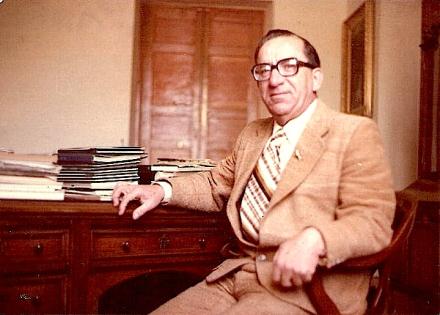Dom Mintoff, a former Maltese prime minister and the towering figure of Maltese politics since the 1960s, has died at 96. ![]()
Mintoff (pictured above in 1972) was leader of the Labour Party from 1949 to 1984, and he was known in Maltese as il-Perit, ‘the architect.’
Always divisive and always entertaining, he served as prime minister from 1955 to 1958 (while Malta remained a British colony) and again from 1971 to 1984.
In his first stint as prime minister, Mintoff was a proponent of full integration of Malta into the United Kingdom — he resigned in 1958 when those negotiations failed. Mintoff had demanded the same level of social services for Malta, and the UK failure to grant that concession led to Mintoff’s turn toward independence. Malta gained full independence in 1964, exactly 150 years after becoming a crown colony of the British empire.
As prime minister, Mintoff brought Malta’s standard of living and welfare state (including a pension system) closer in line with continental Europe, despite Mintoff’s propensity for nationalization of various industries in Malta. Today, however, Malta is not only a member of the European Union but also a member of the eurozone, as of 2008.
The second time around, though, Mintoff was no slouch with Britain and the West, and his foreign policy zig-zags made him unpopular in the West and in the United Kingdom especially. He skillfully played both sides of the Cold War against each other, often to Malta’s benefit. Mintoff kicked the British governor-general and NATO out of Malta upon his election in 1971, and he negotiated to closure of the last UK military base in Malta in 1979. He refused to allow either the United States or the Soviet Union to hold a base in Malta (an island strategically located in the middle of the Mediterranean Sea). Furthermore, Mintoff widened the circle of Maltese diplomacy to include China and other ‘non-aligned’ nations and developed a particularly strong relationship with Libya’s Muammar Gaddafi — he once said Malta was part of the Arab world.
Mintoff’s legacy to Malta is as an architect of the current stable democracy there (even if it was neither entirely stable or democratic with Mintoff in charge). For the world, he’ll remain one of the more ornery and colorful figures of the Cold War era.
One Maltese reporter’s remembrances can be found here. MaltaToday‘s full coverage here, including an in-depth piece assessing his complicated legacy.
